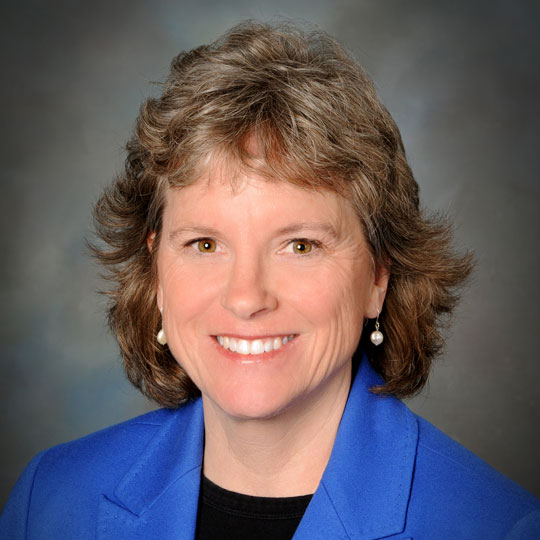St. Luke’s Nampa Embraces Innovative Peer Breastfeeding Program

In the months before Yule Stimpson gave birth to her son in January 2017, she worried about breastfeeding and the health of her baby. “I felt really confused and overwhelmed sometimes,” said the first-time mom.
During her pregnancy, Stimpson was introduced to a peer breastfeeding counselor through an innovative program at Central District Health Department’s Supplemental Nutrition Program for Women, Infants and Children (WIC).
After the baby’s delivery, they stayed in touch via phone calls, texting and personal visits. The peer breastfeeding counselor provided anticipatory guidance and support at a time when Stimpson was anxious about the baby’s ability to receive adequate nutrition by breastfeeding.
“It’s really nice to have someone who has your back when you are vulnerable,” she said.
Now, more new mothers will benefit from this invaluable service. St. Luke’s Nampa and Southwest District Health Department are expanding the acclaimed mother-to-mother peer breastfeeding program to Canyon County.
According to the U.S. Surgeon General, one of the most effective preventive measures a mother can take to protect the health of her infant and herself is breastfeeding. However, while 75 percent of U.S. mothers start out breastfeeding, only 13 percent of babies are exclusively breastfed at the end of six months.
Cindi Bennett, a nurse at St. Luke’s Nampa, is overjoyed. Bennett, an International Board Certified Lactation Consultant (IBCLC) and a graduate nursing student in population health, helped champion a partnership between St. Luke’s Boise and the Central District Health WIC program in 2016. The goal is to support breastfeeding moms and their babies, particularly late preterm infants born between 34 and 37 weeks.
As a former IBCLC nurse in the Newborn Intensive Care Unit (NICU) at St. Luke’s Boise, Bennett became acutely aware of the needs of the these babies and their moms.
“Working in a NICU opened my eyes to the special care needs of all the NICU population, particularly the late pre-term babies because it takes these infants a long time to transition to full feedings at the breast and they require professional and community lactation support,” Bennett said.
Although late pre-term infants are often treated as full-term babies and discharged within two days, they are more at risk for readmission due to jaundice, rapid weight loss and slow weight gain.
Breastfeeding can help improve health and reduce readmissions, yet new mothers face numerous challenges.
“The number one reason why moms quit breastfeeding is because they don’t know if they are feeding their baby enough milk,” she said.

New moms learn from the personal experiences of their peer counselors. All the counselors are recruited from WIC’s target population – low-income mothers. They undergo extensive training, including a hospital orientation, meetings with nursing staff and tours of the NICU and mother/baby units.
St. Luke’s Women’s Service Line Administrator Dixie Weber helped guide the process that enabled the peer mentors to establish contact with new moms in the hospital. By normalizing their presence, the peer mentoring program becomes an “an expected aspect of care.”
“It is a win-win for our patients and our community partners. It provides an innovative approach to providing ongoing breastfeeding support to vulnerable populations and is in alignment with your service line’s desire to establish community partnerships that benefit their patients”.
“The WIC program aligns with St. Luke’s Strategy 2020 by preventing silos along the care continuum and is driving innovation aimed at improving outcomes or decreasing the total cost of care,” she said.
The peer counselors also script their initial phone calls and review resource materials to help them understand the unique needs of mothers who are breastfeeding a late pre-term infant.
The peer counselors learn to listen, encourage and refer situations outside their scope of practice for more advanced medical needs.
“The peer counselors realize they need to get help when the issues are outside their skill sets,” Bennett said.
After the moms and babies are discharged, the peer counselors stay in touch via phone calls, text and-in person visits to answer questions about latching, sore nipples, engorgement and milk supply. Sometimes they share videos to help educate frantic moms needing support in the middle of the night.
The program serves as a “baby friendly step in the transition between the hospital and home,” said Cindy Galloway, a Central District Health-registered dietitian and IBCLC.
Southwest District Health has hired three peer counselors, including one who is bilingual.
“We are very excited about getting into the hospitals and helping make a difference,” said Mary Schwartz, a registered dietitian and breastfeeding peer counselor coordinator. “At WIC, our goal is for babies and moms to be healthy. Breastfeeding is a major component since it will get a child off to a good start in health.”
The peer breastfeeding program has earned recognition from the International Board of Lactation Consultant Examiners and the International Lactation Consultant Association. In April, Bennett and Galloway will give a presentation about the program at the National WIC Association Annual Education and Training Conference in Chicago.
While Bennett is grateful that the program is gaining visibility around the country, she is most excited to help the moms and babies in her adopted hometown. The peer breastfeeding counselor program is just the start to improving the health of moms and babies in the community.
“We need to bring everybody together,” Bennett said. “Population health is where you find resources and bring them in. We are going to find those grandmas, neighbors, businesses, other community partners and other resources to help.”About The Author

Amy Stahl formerly worked in the Communications and Marketing department at St. Luke's.

